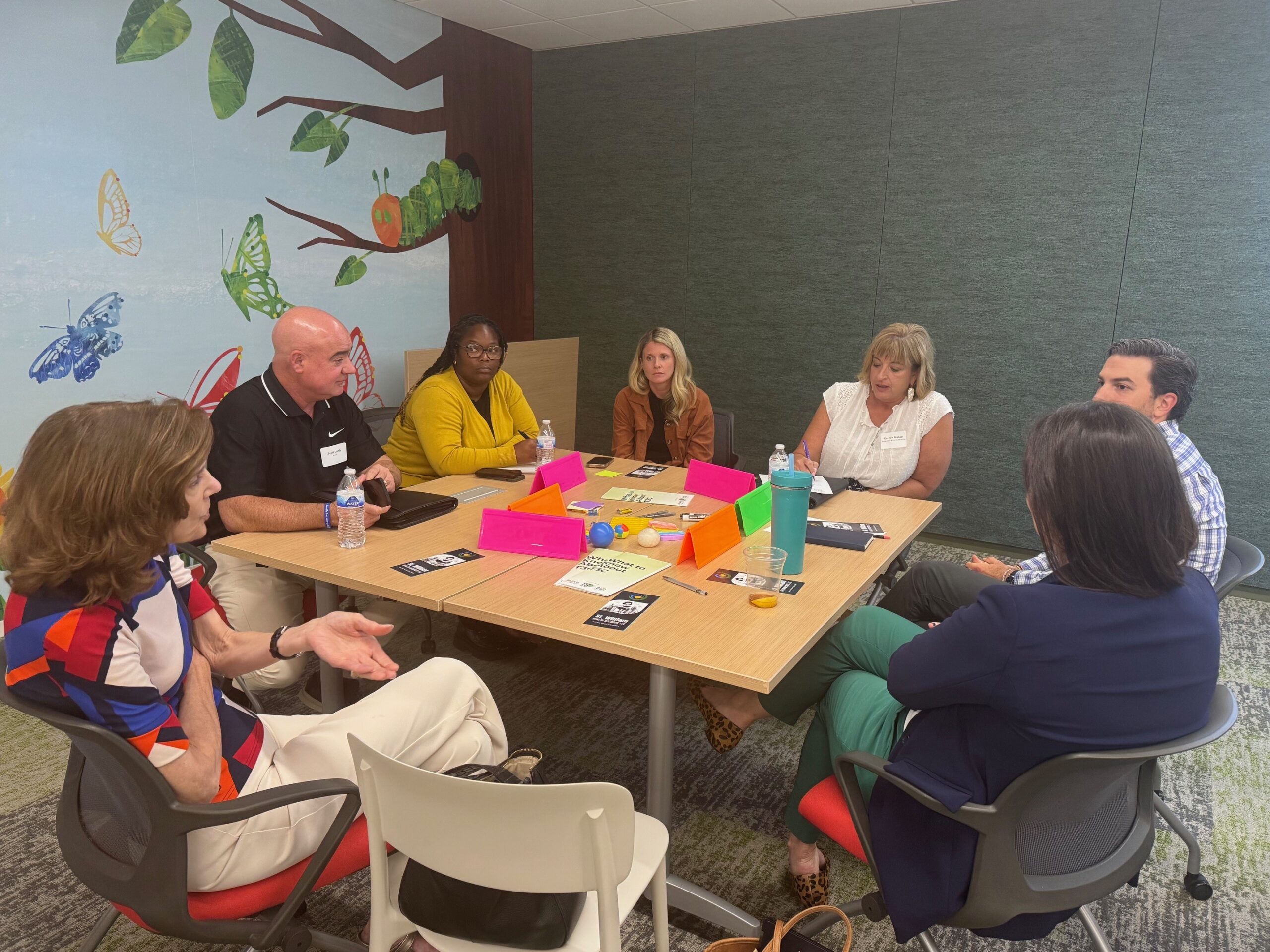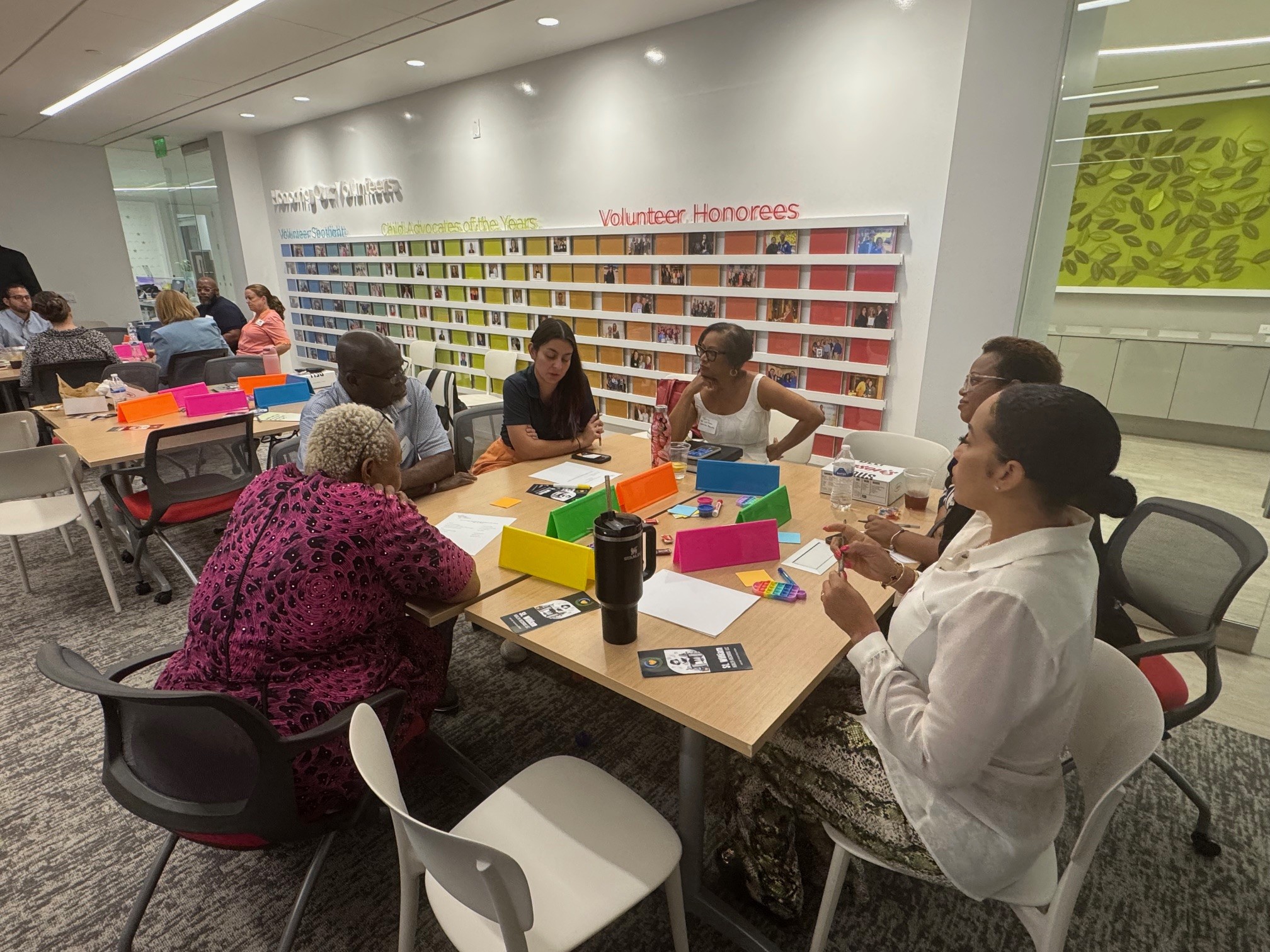Significant changes are underway in the child welfare system throughout Region 6, which includes Fort Bend County and surrounding communities. In response, nonprofit organizations, funders, and government agencies are coming together to navigate these shifts and strengthen services for children and families.
Two key efforts are driving this transition. Community-Based Care (CBC) is transferring responsibility for foster care services from the state to regional nonprofit contractors. At the same time, Texas Child-Centered Care (T3C) is transforming how foster care services are funded and delivered, emphasizing individualized, needs-based care. These changes require nonprofit providers to adjust their systems, expand capacity, and prepare for new expectations.
Bringing Partners Together: Key Takeaways from the Child Welfare Convening
To support this transition, The George Foundation hosted a summer convening of child welfare leaders serving Fort Bend County. The event created space for providers to share insights, raise concerns, and explore solutions. Several themes emerged:
- Agencies are already taking steps to adapt. Some are becoming T3C credentialed, hiring new staff, and contacting DePelchin, as the SSCC under the name Texans Together, and other lead contractors to prepare for CBC implementation.
- Providers face capacity and sustainability challenges. Concerns were raised about Medicaid reimbursement, limited public funding, and the increasing needs of children entering care.
- There is a strong interest in shared tools and infrastructure. Providers identified the need for more consistent data systems, updated resource guides for families, additional training opportunities, and closer collaboration with local schools and government partners.
Collaboration will be essential. Participants emphasized the value of regular communication, cross-sector partnerships, and shared learning to ensure a coordinated response to system changes.



One participant noted, “We are ready to adapt, but we need clear expectations, consistent information, and a collaborative approach.”
A Focus on Prevention: Launching the Child Abuse Prevention Collaborative
While much of the child welfare system focuses on intervention and recovery, local organizations are also investing in prevention. Child Advocates of Fort Bend is leading the new Child Abuse Prevention Collaborative (CAP-C), which aims to reduce the incidence of child abuse through education, outreach, and shared learning.
With seed funding from a Human-Centered Design Capacity Building Grant, the Collaborative is bringing together over a dozen local organizations to:
- Map existing prevention resources
- Conduct interviews with school staff, foster care alumni, and parents with lived experience
- Develop a countywide awareness and education campaign to prevent child abuse
Collaborative members include AccessHealth, Texana, Fort Bend ISD, UTHealth, and several community-based organizations. Child Advocates of Fort Bend serves as the fiscal agent and convener for this effort.
Looking Forward: A Collective Commitment to Children and Families
As Region 6 continues to prepare for CBC and T3C implementation, community partners remain focused on what matters most: ensuring that every child has the opportunity to grow up safe, supported, and connected.
The George Foundation is committed to supporting this work through grantmaking, convening, capacity building, and data-informed planning. New tools like the Thriving Index, currently under development, will help track progress in housing stability, behavioral health, workforce access, and family well-being.
To view the slide deck from the Child Welfare Convening, click HERE.


